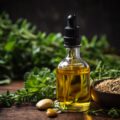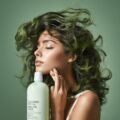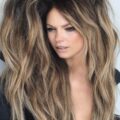The Foundation of Healthy Hair
Beautiful, healthy hair starts from within. While styling products and treatments can help improve appearance, true hair health begins with proper nutrition, hydration, and gentle care. This guide will explore holistic approaches to maintaining luscious locks that will have you feeling confident and radiant.
Our hair is a reflection of our overall wellbeing. By nourishing our bodies and treating our hair with kindness, we can achieve that healthy shine we all desire. Let’s explore some compassionate ways to care for our crowning glory.
Nourishing Your Hair from the Inside Out
A balanced diet rich in vitamins and minerals is essential for healthy hair growth. Some key nutrients include:
- Protein – the building block of hair
- Iron – helps carry oxygen to hair follicles
- Vitamin C – aids in iron absorption
- Omega-3 fatty acids – promote scalp health
- Biotin – strengthens hair and nails
Staying hydrated is equally important. Drinking plenty of water helps deliver nutrients to hair follicles and keeps your scalp moisturized. Aim for at least 8 glasses of water per day.
Gentle Cleansing and Conditioning Practices
Treat your hair with love during the washing process. Use lukewarm water and gentle, sulfate-free shampoos that won’t strip natural oils. Massage your scalp with care to stimulate circulation without causing damage.
When conditioning, focus on the lengths and ends of your hair where moisture is needed most. Consider using a leave-in conditioner for extra nourishment. Allow your hair to air dry when possible, or use the coolest setting on your hairdryer to minimize heat damage.
Protecting Your Hair from Environmental Stressors
Our hair faces many challenges from the environment. Sun exposure, pollution, and harsh weather can all take a toll. Here are some tips for protection:
- Wear a hat or scarf when in direct sunlight
- Use a swim cap in chlorinated pools
- Apply a heat protectant before using styling tools
- Sleep on a silk or satin pillowcase to reduce friction
Remember, your hair is delicate. Treat it with the same care and respect you would give to any other part of your body.
Embracing Your Natural Hair Texture
One of the kindest things you can do for your hair is to embrace its natural texture. Every hair type is beautiful in its own way. By working with your natural curl pattern or texture instead of fighting against it, you can reduce damage and enhance your hair’s natural beauty.
Experiment with styles that complement your hair type. This might mean embracing your curls, trying heatless styling methods, or finding cuts that enhance your hair’s natural movement. Remember, the goal is healthy hair, not conforming to unrealistic standards.
The Power of Self-Care Rituals
Caring for your hair can be a wonderful form of self-care. Set aside time each week for a deep conditioning treatment or scalp massage. This not only benefits your hair but can also be a relaxing, meditative experience.
Consider incorporating hair oiling, a practice rooted in Ayurvedic tradition. Gently massaging oils like coconut, jojoba, or argan into your scalp and hair can nourish follicles, reduce stress, and promote overall hair health.
Frequently Asked Questions
1. How often should I wash my hair?
The frequency of hair washing depends on your hair type and lifestyle. Generally, 2-3 times a week is sufficient for most people. Those with very oily hair may need to wash daily, while those with dry or curly hair might benefit from washing less frequently.
2. Can stress affect hair health?
Yes, stress can significantly impact hair health. Chronic stress can disrupt the hair growth cycle and even lead to hair loss. Practicing stress-reduction techniques like meditation, yoga, or deep breathing can benefit both your mental wellbeing and your hair health.
3. Are natural hair products better than commercial ones?
Natural products can be gentler on hair and scalp, but it’s important to choose products that suit your specific hair needs. Look for products free from harsh chemicals, regardless of whether they’re natural or commercial. What works best can vary from person to person.
4. How can I prevent split ends?
Regular trims every 6-8 weeks can help prevent split ends. Additionally, be gentle when brushing, avoid excessive heat styling, and use a leave-in conditioner to keep hair moisturized and protected.
5. Is it necessary to use heat protectant products?
If you use heat styling tools, a heat protectant is essential. These products create a barrier between your hair and the heat, reducing damage and helping to maintain your hair’s health and shine.
Remember, healthy hair is a journey, not a destination. Be patient and kind to yourself as you discover what works best for your unique hair. Celebrate the small victories and embrace the learning process. Your hair is a part of what makes you uniquely you – treat it with love and watch it flourish.









